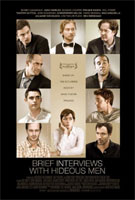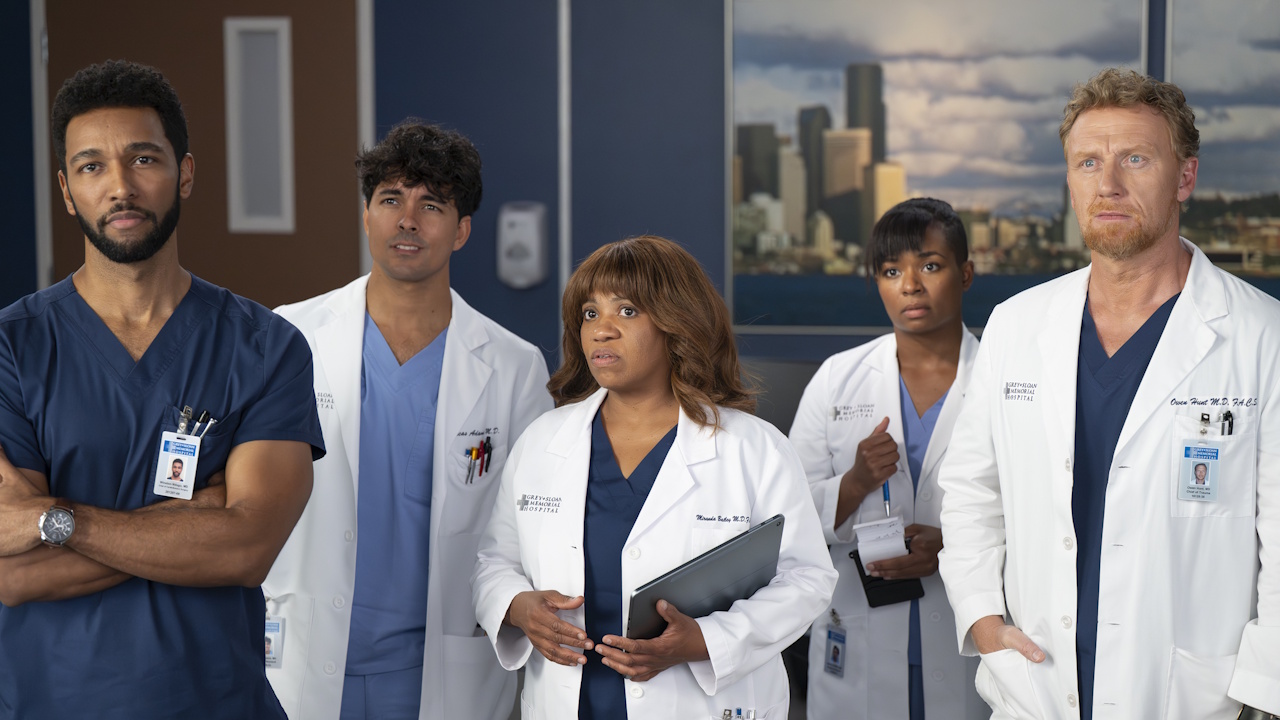David Foster Wallace’s short story, “Brief Interviews with Hideous Men” presents John Krasinski, writer/director/actor/all-around-good-guy, with a problem. Although the dialogue on the page offers each actor an array of layers, comedy, and heart, the material isn’t necessarily film-friendly, so he’s left with a flick that feels more suited to the stage than the screen. The conversations are completely one-sided and written less from the perspective of real people and more from the psyche of the genius that was Wallace, a man with a keen insight into the human mind but most of all, his own.
Brief Interview with Hideous Men follows, Sara, a graduate Anthropology student who decides that the best way to understand the post-feminist era would be to talk to a large group of men. She does this through a series of one-on-one interviews. As with Wallace’s story, these interviews end up being the center of the movie. The conversation topics range from odd sexual habits to deeply touching stories of family. They look to assess the nature of the male psyche, how men function in the world, with women, without, and how that, in turn, reflects upon the female psyche.
In many cases, Krasinski and his actors are able to pull this off pretty well. Ben Gibbard (lead singer of Death Cab for Cutie) gives a surprisingly sincere performance as a man who feels the truth to his relationship lies in his woman’s eyes at her most vulnerable moment: her climax. Will Forte plays a man who absolutely “loves” women but doesn’t seem to have ever known one, much less dated one. Best of all is Dominic Cooper, whose performance as Daniel, a student of Sara’s who writes a seemingly distasteful essay, ends up being the centerpiece and presenting the audience with a moral question that leaves us contradicting ourselves through this movie’s short 80 minutes.
These interviews are the heart of Krasinski’s piece, which at times, hardly feels like a movie. While not all of them are as strong as Daniel’s, the ones that do deliver border on genius, and that has everything to do with David Foster Wallace’s understanding of the post-feminist male personality. But kudos has to go to Krasinski as well for not completely skewing Wallace’s words, which can happen very easily given that one million interpretations can be taken from a reading of one of his stories or essays.
But you can’t make a movie based solely on one-sided interviews, can you? That’s how Wallace’s story was structured, and Krasinski couldn’t bring himself to experiment much, especially not on his directorial debut. Instead, he brings us Sara and her story of a tattered relationship with Ryan (Subject #20). Sprinkled between the interviews are bits of their time together, the beginnings, the aftermath, the high points. And this ends up being the greatest weakness of the movie. Because Sara is only ever meant to be the adhesive to the story, we never learn enough about her to care, yet her story is too front-and-center to ignore. Krasinski makes the mistake of assuming that his interviews are not enough and that audience would need some sort of linear story line to follow in order to stay interested. Not true. In fact, the only time I wasn’t interested in the movie was when Sara was on screen.
So in the end, Brief Interviews with Hideous Men is a worthy effort from Jim Halpert but not one that amazes as much as I believe he wants it to. The film’s strength is lost in its weakness and although it shines in places, it never feels fully realized. A couple of pictures down the road, maybe even his next one, Krasinski may very well grow into a promising director and writer, but for now, he’s still Jim to me. This isn’t his Garden State, but I suppose it wasn’t supposed to be. Instead, it’s a decent adaptation of a soon-to-be-classic short story, and given that story’s amazingly complicated author, I suppose it was a feat for John Krasinski to pull off Brief Interviews with Hideous Men at all.
Your Daily Blend of Entertainment News

